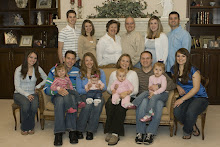Looking Ahead to Times of Drought
By Carolyn Nicolaysen (Meridian Magazine)
It is high irony that with record flooding in the Midwest USA, many areas of the nation and world are experiencing severe drought. Farmers and ranchers in California have already had their water rations cut by 30% to 80%. Can rationing of household water be far behind? Australia, Spain, the Southeast USA, Texas, South Dakota, parts of Africa, Mexico, and China — all are dealing with drought.
This past week, economists were discussing our biggest global problems. Everyone recognizes that we have unprecedented price hikes for oil and gas. Food shortages and soaring prices follow closely behind in second place, and now many have a concern for water shortages and inevitable price increases for this essential commodity.
When the order comes to restrict your water use, what can you do?
Check for hidden water leaks. Record the reading on your water meter. After two hours, when no water is being used, check the meter again. If the meter does not read exactly the same, there is a leak.
Check your toilets for leaks. Put a few drops of food coloring in your toilet tank. Do not flush. Check after thirty minutes. If the water in the bowl has begun to change color, you have a leak that should be repaired immediately. Replacement parts are inexpensive, easy to install and available at all hardware stores.
Displace some water. Place a plastic bottle filled with water or pebbles in your toilet tank.
Be sure bottles are away from the mechanisms in the tank. Test to be sure you still have sufficient water for the toilet to work properly.
Don't flush. Every time you flush a facial tissue you waste five to seven gallons of water. Use your imagination for the rest.
Install water-saving shower heads. Water-saving shower heads are inexpensive and easy to install. Showers can use five to ten gallons every minute. Limit your showers to the time it takes to soap up, wash down and rinse off.
Think bath. If your water is rationed, think bath. A bath will use less water than an average shower. This can really be a benefit when children complain about being too hot. Throw them in the tub in their swim suits and just before getting them out wash them up and shampoo hair — two things accomplished at once.
Install low-flow faucet aerators. All household faucets should be fit with an aerator. Since you use your faucet far more than any other water source in your home, aerators can provide the greatest savings. If your faucets do not have them, install them. If they have them, make sure they are rated at 2.75 gallons per minute or less. The rating will be on the side of the aerator.
Take shorter showers. One way to cut down on water use is to turn off the shower after soaping up, then turn it back on to rinse. A four-minute shower uses 20 to 40 gallons of water. If you have kids, try setting a timer.
Turn off the water after you wet your toothbrush. There is no need to keep the water running while brushing your teeth. Just wet your brush and fill a glass for rinsing. Better yet, brush your teeth in the shower. That's right, while you are waiting for the water to warm up use the cool water to brush and rinse.
Rinse your razor in the sink. Fill the sink with a few inches of warm water, swish and rinse.
Check for leaks. Even a small drip from a worn faucet washer can waste 20 gallons of water per day. Also check your clothes washer hoses regularly for cracks and leaks.
Insulate your water pipes. It's easy and inexpensive to insulate water pipes with foam pipe insulation. Your water will heat faster wasting less water and saving money on your utility bill.
Use your dishwasher and clothes washer sparingly . Dishwashers and washing machines should be fully loaded before using. Avoid the permanent press cycle, which uses extra water for the second rinse. If you have to wash a partial load, adjust water levels to match the size of the load. Remember it takes just as much electricity to run a small load as it does a large one.
Minimize use of the garbage disposal. Disposals require lots of water to operate properly, and also add to the volume of solids in a septic tank. This can lead to additional maintenance costs and more frequent pumping.
When washing dishes by hand, don't leave the water running. If you have a double sink, fill one with soapy water and one with rinse water. If you have a single-basin sink, wash your dishes, place them in a rack, and rinse them all at once after all the washing is complete.
Don't let the faucet run while you clean vegetables. Scrub your sink, rinse and fill with water. Now you can safely rinse off your fruits and vegetables. Better yet, fill a large pot or bucket with water, rinse your produce and use that water to water plants.
Keep a bottle of drinking water in the fridge. How many times do we let the water run to cool it and then fill our glass, only to pour half of it back down the sink.
Use water bottles. In addition to having a pitcher in the fridge, use reusable water bottles or sports bottles for each family member. Fill the bottles, and the temptation to pour out the water remaining after a drink will be gone. This also saves on the number of glasses used during the day — saving money and water use, by reducing the number of loads you have to run in the dishwasher.
Defrosting food. Don't use running water to defrost food. Fill a pot with hot water and add the food or use a microwave to defrost.
Cut down on water when cooking. Cook food in as little water as possible. We are all guilty of filling a pot when a 1/2 pot of water would do. Again this also saves on the utility bill; it takes less energy to heat less water.
Install an instant water heater. Consider installing an instant water heater on your kitchen sink so you don't have to let the water run while it heats up. This will also reduce utility costs.
Save the ice. If you accidentally drop ice cubes when filling your glass from the freezer, don't throw them in the sink. Drop them in a house plant instead. If you have ice left after a picnic, water a plant or dry spot on a lawn.
Water your lawn only when it needs it. A good way to see if your lawn needs watering is to step on the grass. If it springs back up it doesn't need water. If it stays flat, the lawn is ready for watering. Letting the grass grow taller will decrease the rate of water evaporation and encourage root growth.
Give it a good soaking. When watering the lawn, do it long enough for the moisture to soak down to the roots. A light sprinkling will evaporate quickly and encourages shallow root systems. Not a good thing. Place an empty tuna can on your lawn - when it's full, you've watered about the right amount.
Water early. Early morning is generally the better time to water. Watering after dusk can encourage the growth of fungus, but when your evenings stay hot this is much less of a problem. Watering early or late reduces water loss to evaporation.
Time it. If you don't have an automatic sprinkler system, set a kitchen timer when watering your lawn or garden.
Not when it's windy. Try not to water when it's windy. Wind will blow water from sprinklers off target and speed evaporation.
High tech helps. Use watering systems for shrubs, flower beds and lawns. Use soaker hoses, drip irrigation, micro-sprinklers and timers. Add water-sensors to keep the sprinklers from running when it's raining.
Plant drought-resistant shrubs and plants. Many shrubs, trees and plants thrive with much less watering than others. Replace plantings with native plants.
Use your downspouts. Direct downspouts towards shrubs and trees. You can purchase perforated tubing for this or just slip a curved piece of metal under the spout.
Add a layer of mulch around trees and plants. Mulch will slow evaporation of moisture while discouraging weed growth. Adding 2-4 inches of mulch increases the ability of the soil to retain moisture.
Don't water the street. Position your sprinklers so water lands on the lawn or garden, not on paved areas such as walk ways and driveways.
Water less and more often. If you are unable to control run off divide your watering cycle into shorter periods to allow for better absorption.
Aerate your lawn. Punching holes in your lawn about six inches apart so water will reach the roots rather than run off the surface, also encourages healthy root growth. Walk around the yard in a pair of golf shoes.
Don't run the hose while washing your car. Clean the car using a pail of soapy water and a hose with a spray nozzle for rinsing for more efficient use of water. Wash your car on the grass and water your lawn at the same time. Better yet, use a commercial car wash that recycles water.
Make it a clean sweep. Use a broom, not a hose, to clean driveways and sidewalks.
Check for leaks outside. We often ignore leaks outside because they are not as visible . Check frequently to keep hose connections, faucets, pipes, pool pumps and sprinklers drip-free. Replace washers at spigots and hose connections yearly to eliminate leaks.
Grass is not always best. Avoid planting grass in areas that are hard to water, such as hillsides and narrow strips along sidewalks and driveways. Ground covers require less water and allow less run-off.
Plant in season. Plant during the spring or fall, when the watering requirements are lower. Not only will you save water and money on your bill but also on the cost to replace plants that die due to insufficient water.
Evaporative coolers. Evaporative coolers should be serviced at the beginning of each cooling season. They use lots of water and can be huge water wasters if not maintained. Turn on the water pump a few minutes before turning on the fan. This saturates the pads first, making your cooler more efficient.
Open a window a little in the rooms you are cooling. This draws the cooled air through. Install a thermostat and timer on your cooler so it only operates when necessary.
Cover up. Install covers on pools and spas to lessen evaporation and deduce the need for filling. Also, keep the temperature cool as cooler water evaporates less quickly.
Fish fertilizer. When you clean your fish tank, use the water you've drained on your plants. The water is rich in nitrogen and phosphorus, the things you pay lots of money for when you purchase a fish fertilizer for your household plants.
Locate water shut off valves. Make sure you know where your master water shut-off valve is located. This could save gallons of water and lots damage to your home if a pipe were to burst.
Be selective about water features and fountains. Avoid installing ornamental water features and fountains that spray water into the air. It evaporates and is gone. Trickling or cascading fountains lose less water to evaporation but should still be turned off and drained during a drought.
A bath for Fido. Bathe your pets outdoors in an area in need of water.
Clean the pool filter. Manually clean your pool's filter. You'll do a more thorough job and use less water. The average backwash uses between 250 to 1,000 gallons of water.
Use ceiling fans. Use ceiling fans to circulate air within your home saving on cooling costs. Also use fans on patios; they not only cool but keep away the flies.
During these uncertain drought times we may be faced with rationing of water and/or higher water costs. Think about these facts from h2o4u.org, and then prepare to conserve.
* A shower can use 25 to 50 gallons (5 gallons per minute)
* Just washing your hands can use up to 3 gallons of water (with tap running at 3 gallons per minute)
* The average toilet uses 5 to 7 gallons of water per flush.
* Leaving the water running while you brush your teeth can waste 3 gallons of water (at 3 gallons per minute).
* Outdoor spigots can pump out 5 to 10 gallons per minute.
* Automatic dishwashers use about 15 gallons per load.
* Washing one load of clothes in an automatic washer uses about 45 gallons.
* The average bath takes about 36 gallons of water.
* The average individual uses about 125 gallons of water per day.
* An average residence uses 107,000 gallons of water per year.
* About 340 billion gallons of water are used every day in the United States. This total includes water used in irrigation, in industry, and in fire fighting and street cleaning.
* Cutting one minute off your shower time can save about 700 gallons of water per month.
* A faucet that drips 60 times in one minute would waste over 3 gallons a day, 1,225 gallons per year.
* Humans require about 2 1/2 quarts of water a day.
* A human can live more than a month without food but only as much as one week without water.
Water has made or broken civilizations and economies. It is always present in a land of plenty, and its absence has humbled nations like nothing else. One key to any emergency plan for a family or community is to anticipate the water required to survive any disaster scenario, should normal sources be cut-off or otherwise interrupted. Even in the flood-ravaged Midwest, communities underwater were importing trucks of fresh drinking water because of a shortage of safe wells.
Following an earthquake, we have been warned that one of the first big issues will be the interruption of water supplies. Every family should have a supply of safe, properly stored water — just in case. And during drought, when there may be restrictions, the methods we have discussed here for stretching a gallon of water will be good preparation for an event that limits us to using just what we have stored. In such a time, water might only be for the sustaining of life, and nothing else.

















